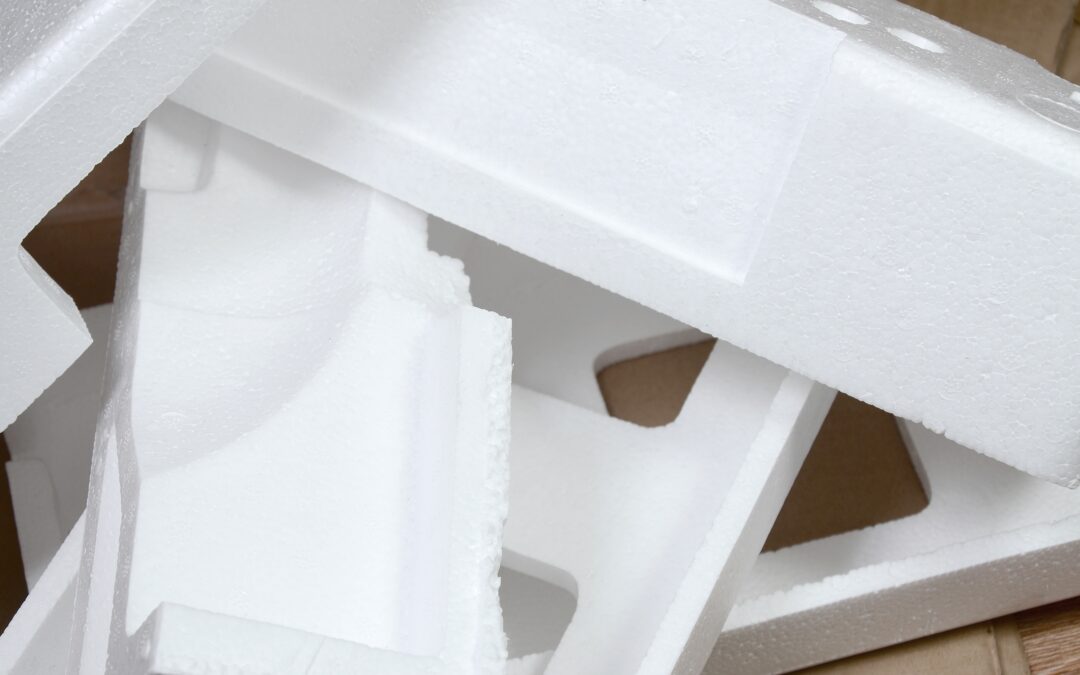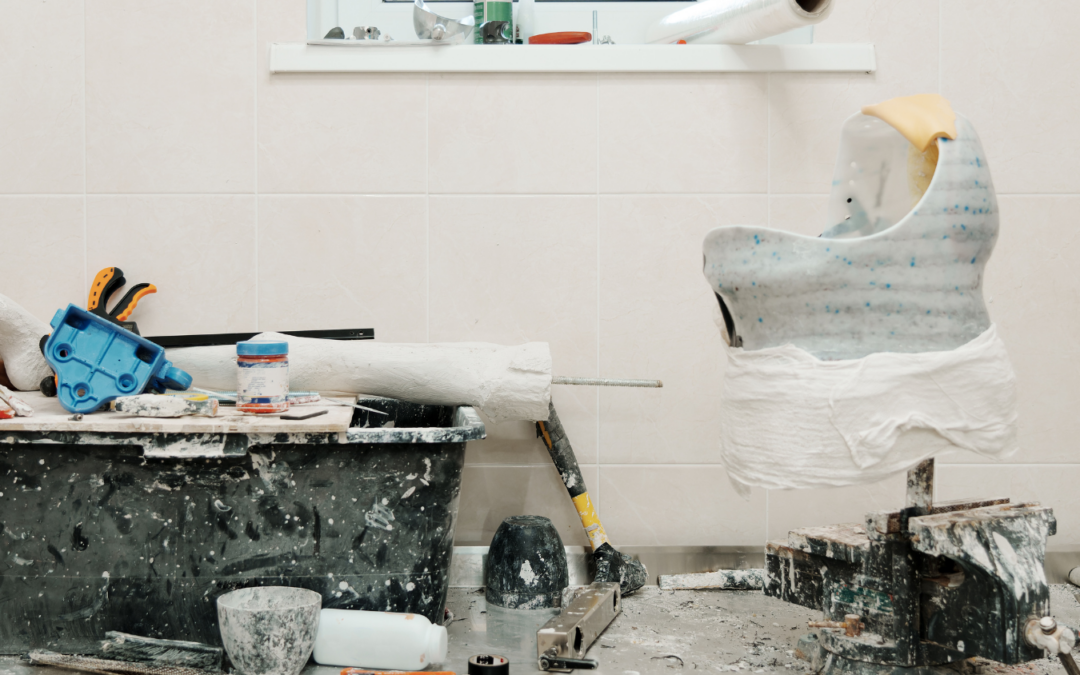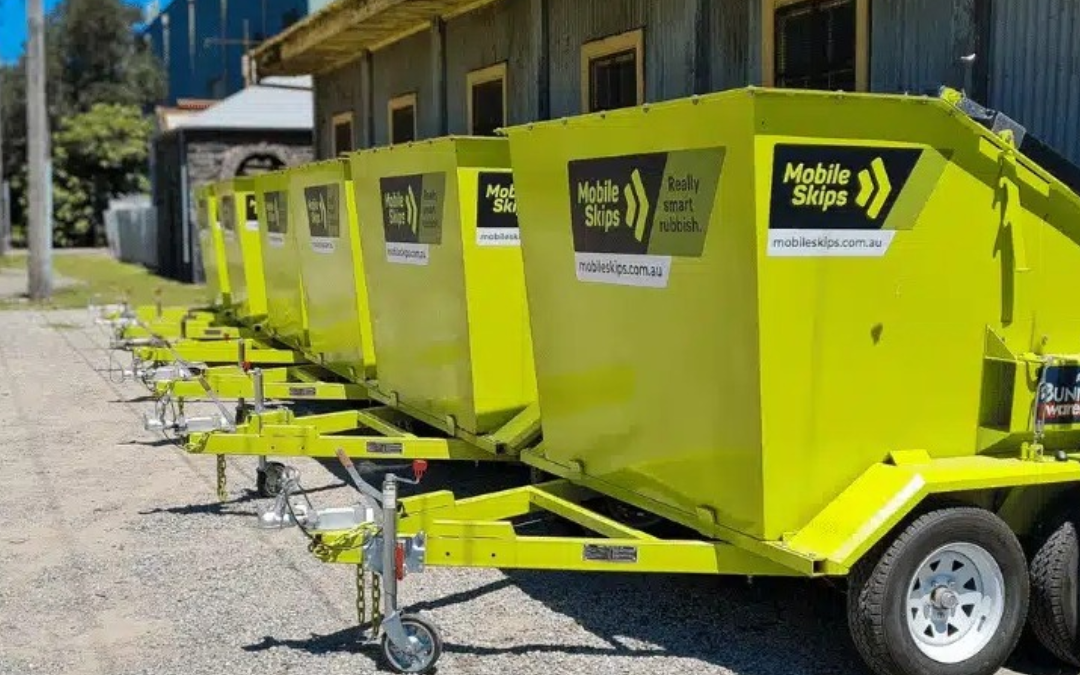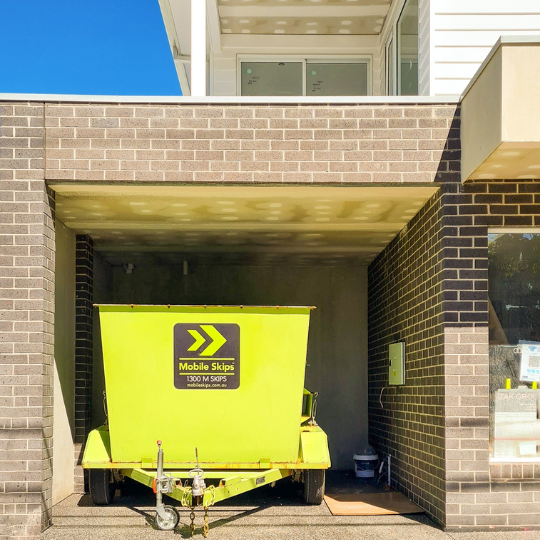Why does bathroom renovation waste management matter?
Importance of Proper Bathroom Renovation Waste Disposal
When undertaking a bathroom renovation, effectively disposing of renovation waste is crucial. Proper bathroom rennovation waste management ensures a clean, safe working environment and helps minimise the environmental impact of your project. Discarded materials from bathroom renovations often include hazardous and recyclable items, highlighting the importance of handling waste responsibly. With Australia generating millions of tons of waste yearly, contributing to efficient waste disposal practices is vital.
Skip bins are a practical and cost-effective solution for managing renovation waste. They offer a convenient way to collect and dispose of various materials, ensuring that your renovation site remains tidy (Intelligent Living). Additionally, skip bins support recycling efforts, as they can help segregate recyclable materials from general rubbish.
Overview of Common Waste Generated from Bathroom Renovations
Renovating a bathroom generates a diverse array of waste materials. Understanding the types of waste produced can help you plan for effective disposal. Here is a breakdown of common bathroom renovation waste:
Old Fixtures (Sinks, Toilets, Taps)
- Common examples include ceramic sinks, porcelain toilets, and metal taps.
- These items are typically disposed of in skip bins, but larger fixtures should be broken down to maximise space.
Bathtubs and Shower Units
- Includes fiberglass, ceramic, and acrylic bathtubs and shower enclosures.
- Cutting or breaking large pieces into smaller parts can improve skip bin efficiency.
Tiles and Flooring
- Consists of ceramic tiles, vinyl flooring, wood, and laminate.
- Neatly stacking tiles and flooring saves space in the skip bin.
Drywall and Plasterboard
- Generated from drywall sheets, plasterboard, and wall cladding.
- Bagging smaller debris and scraps helps prevent dust and maximises bin space.
Plumbing Pipes and Fixtures
- Encompasses metal and plastic plumbing components, old pipes.
- Ensuring pipes are drained and debris-free before disposal is essential.
| Waste Type | Disposal Method |
|---|---|
| Old Fixtures | Skip bin (Break down large items) |
| Bathtubs and Showers | Skip bin (Cut or break into smaller pieces) |
| Tiles and Flooring | Skip bin (Stack neatly) |
| Drywall and Plasterboard | Skip bin (Bag smaller debris) |
| Plumbing Pipes | Skip bin (Ensure pipes are drained and clean before disposal) |
| Electrical Waste | Not suitable for skip bins; use certified e-waste recycling service |
| Hazardous Materials | Not suitable for skip bins; use local hazardous waste services |
Effectively managing these materials not only keeps your renovation site tidy but also ensures compliance with local disposal regulations.
For more detailed guidelines on handling waste from different renovation projects, refer to our sections on kitchen renovation waste, home renovation waste, and demolition waste. Efficiently organising and disposing of waste from your bathroom renovation helps maintain a safe environment and promotes sustainability.
Types of Bathroom Renovation Waste and How to Dispose of Them
Understanding how to properly dispose of the waste generated from a bathroom renovation project is essential. Here’s a detailed look at the common types of waste and the best disposal methods for each.
Old Fixtures (Sinks, Toilets, Taps)
Can Go in Skip Bins
- Ceramic sinks
- Porcelain toilets
- Metal taps
These fixtures are typically heavy, so it’s important to be mindful of the weight limits of your skip bin. Mobile Skips offers skip bins with varying capacities, such as the Heavy Skip bin, which can hold up to 1000 kg (Mobile Skips).
Disposal Tip
Break down large fixtures to maximize space in your skip bin. For example, remove taps from sinks and break them into smaller pieces to efficiently utilise bin space.
Bathtubs and Shower Units
Can Go in Skip Bins
- Fiberglass bathtubs
- Ceramic bathtubs
- Acrylic shower enclosures
These items can take up significant space, so choosing the right size skip bin, such as a 3 cubic meter skip which holds roughly 16 wheelie bins’ worth of waste, might be ideal for smaller projects.
Disposal Tip
Cut or break large pieces into smaller parts before placing them in the skip bin to ensure efficient usage and avoid overfilling.
Tiles and Flooring
Can Go in Skip Bins
- Ceramic tiles
- Vinyl flooring
- Wood
- Laminate
Flooring materials can be quite bulky, so stacking them neatly can save considerable space in your skip bin.
Disposal Tip
Stack tiles and flooring materials neatly to save space and make it easier to manage the waste removal process.
Drywall and Plasterboard
Can Go in Skip Bins
- Drywall sheets
- Plasterboard
- Wall cladding
These items can create a lot of dust. It’s important to bag smaller debris and scraps to keep the worksite clean and maximise skip bin space.
Disposal Tip
Bag smaller debris and scraps to prevent dust and optimise the space in your skip bin. Place heavier items at the base and distribute weight evenly to ensure safe transportation.
Plumbing Pipes and Fixtures
Can Go in Skip Bins
- Metal plumbing components
- Plastic plumbing components
- Old pipes
Ensure that plumbing parts are drained and free of any hazardous liquids before disposal.
Disposal Tip
Drain pipes and remove any hazardous liquids before disposing them in the skip bin. This helps to comply with safety regulations and prevents contamination (Intelligent Living).
Hazardous Materials (Paint, Chemicals, Adhesives)
Not Suitable for Skip Bins
- Paints
- Solvents
- Adhesives
- Any other hazardous materials
These materials require special handling and should not be placed in regular skip bins due to their potential impacts on human health and the environment (Ultra Cleaning).
Disposal Tip
Use your local council’s hazardous waste collection service or drop-off facility for proper disposal of hazardous materials.
Ensuring proper disposal of bathroom renovation waste not only keeps your project on track but also supports sustainable waste management practices. For more tips, visit our article on sustainable waste removal.
How Mobile Skips Can Help with Bathroom Renovation Waste
4 Cubic Metre Skip Bins: Perfect for Bathroom Renovation Waste
Mobile Skips offers 4 cubic metre skip bins that are ideal for your bathroom renovation waste disposal needs. These bins are spacious enough to accommodate a variety of renovation waste, from old fixtures and tiles to drywall and flooring materials. The compact size ensures efficient space utilisation, making it perfect for residential use.
| Skip Bin Size | Capacity | Types of Waste |
|---|---|---|
| 4 Cubic Metre | Ample Space | Old fixtures, bathtubs, tiles, drywall, flooring |
No Council Permits Required for Skip Placement
One of the biggest advantages of using Mobile Skips is that you do not need a council permit for skip placement. The skip bins are engineered on a registered trailer, allowing them to be parked in various locations like underground car parks or driveways. This makes it extremely convenient for disposing of bathroom renovation waste.
Convenient for Residential Areas: Fits Easily in Driveways
Mobile Skips are designed to fit easily in residential areas, including tight driveways. This makes them an excellent choice for homeowners undertaking diy renovation projects. You can have the skip bin placed right at your doorstep, ensuring easy access for disposing of debris and waste from your bathroom renovation.
Eco-Friendly: Recycling Options for Bathroom Materials
Mobile Skips partner with leading waste management companies in Australia to ensure responsible waste removal and recycling. This eco-friendly approach helps divert waste from landfills and promotes sustainable practices. Additionally, Mobile Skips plants one tree for every skip hire booked online, reducing your carbon footprint and contributing to environmental conservation (Mobile Skips).
Flexible Hire Periods to Match Your Project Schedule
Understanding that each renovation project varies in scope and time, Mobile Skips offers flexible hire periods. You can choose a hire period that aligns with your project schedule, ensuring you have adequate time to complete your renovation without the stress of rushing your waste disposal. For more information on managing your renovation timelines effectively, check out tips on renovation clean up.
By integrating these features, Mobile Skips stands out as a practical solution for efficient and eco-friendly bathroom renovation waste disposal.
Tips for Maximizing Skip Bin Space During a Bathroom Renovation
Efficiently managing your bathroom renovation waste involves strategic use of skip bin space. Here are practical tips to maximise the space in your skip bin during a bathroom renovation.
Break Down Large Fixtures (Bathtubs, Cabinets, Tiles)
Large fixtures such as bathtubs, cabinets, and tiles can take up a significant amount of space in your skip bin if not handled correctly. To optimise space:
- Bathtubs: Cut or break down large pieces into smaller parts. This allows for better stacking and utilising the bin space.
- Cabinets: Disassemble cabinets into panels and smaller components.
- Tiles: Break tiles into manageable pieces and stack them neatly.
Following these steps ensures that larger fixtures do not consume unnecessary space in your bin, thus maximising capacity.
Organise Waste: Stack Tiles, Flooring, and Wall Debris Efficiently
Organising your waste can dramatically improve space utilization within the skip bin. Consider the following practices:
- Tiles: Stack tiles in a neat pile, layer by layer. This reduces air gaps and makes more room available.
- Flooring: Arrange flooring pieces such as vinyl, wood, or laminate in flat stacks.
- Wall debris: Bag smaller debris and scraps to prevent dust and maximise bin space.
| Waste Material | Organisation Tip |
|---|---|
| Tiles | Stack neatly in layers |
| Flooring | Arrange flat in stacks |
| Wall debris | Bag smaller pieces to prevent dust |
Being methodical with the stacking and organisation of these materials can greatly improve the efficiency of your skip bin usage.
Remove Waste Regularly to Keep Your Worksite Clear
Keeping your worksite clear and clutter-free is essential during a renovation project. Regular waste removal ensures:
- A safe environment, mitigating the risk of accidents or injuries.
- More efficiency in your renovation work, as you have better access to the workspace.
- Easier waste management, as smaller, frequent loads are easier to handle than one large accumulation of debris.
Make it a routine to remove waste periodically instead of letting it pile up. This not only aids in keeping your renovation project on track but also makes the disposal process more manageable.
For more information on effectively handling renovation debris, read our guide on renovation waste. To ensure you choose the appropriate size skip bin for your project, consider the guidelines provided by Intelligent Living.
By applying these tips, you can maximise your skip bin space, maintain a tidy worksite, and make your bathroom renovation process more efficient and organised. For further assistance, you may refer to our articles on removing renovation waste and renovation clean up.
What Not to Put in Your Skip Bin and How to Handle It
When undertaking a bathroom renovation, it’s essential to know what items shouldn’t go in your skip bin to ensure proper disposal and avoid any legal or environmental issues.
Hazardous Materials (Paints, Solvents, Adhesives)
Hazardous materials such as paints, solvents, and adhesives pose a significant risk to the environment and human health if not disposed of properly. These items are not suited for skip bins.
Solution: Use local hazardous waste disposal services or council collection days. Local councils often have designated days for hazardous waste collection. This ensures that these materials are handled and disposed of safely. For more information, check your local council’s website or visit Ultra Cleaning.
Asbestos
Asbestos is a highly dangerous material frequently found in older homes. It is not suitable for skip bins due to its hazardous nature. Handling and disposing of asbestos without the proper precautions can pose serious health risks.
Solution: Arrange for a professional to safely remove Asbestos from your property. You should contact accredited asbestos removalists who are experienced in dealing with this material. More details can be found at Mobile Skips.
Large Appliances (Water Heaters, Large Electrical Units)
Large appliances, including water heaters and substantial electrical units, are inappropriate for skip bins due to their size and potential environmental impact.
Solution: Contact a specialised appliance disposal service or recycling facility. These services ensure that large appliances are dismantled and recycled correctly, preventing environmental contamination.
Understanding the proper disposal methods for different types of renovation waste will help keep your project safe and compliant with local regulations. For tips on handling other types of waste from your renovation project, visit our section on removing renovation waste or explore our guides on home renovation waste.
Fixing the knowledge gap when it comes to builders waste and demolition waste can greatly improve the efficiency and safety of your renovation projects.
Key Takeaway
Why Efficient Bathroom Renovation Waste Disposal is Important?
Efficient disposal of bathroom renovation waste is crucial for several reasons. Proper waste management helps reduce the project’s carbon footprint, ensuring environmentally responsible handling of materials. According to Ultra Cleaning, effective waste disposal minimises negative environmental impact.
Improper waste disposal can lead to cluttered and hazardous workspaces, increasing safety risks. Moreover, regulated disposal practices help comply with local regulations and avoid potential fines. Utilising reliable skip bin services like Mobile Skips ensures that prohibited items, such as asbestos, chemicals, batteries, and biological waste, are not included in skip bins (Mobile Skips).
Final Tips for Staying Organized and Keeping Waste Under Control
To effectively manage bathroom renovation waste:
- Break Down Large Fixtures: Disassemble bathtubs, cabinets, and tiles to maximise skip bin space.
- Organise Waste: Stack tiles, flooring, and other debris neatly to save space.
- Regular Waste Removal: Continually remove waste to keep your worksite tidy and reduce hazards.
- Use Appropriate Disposal Methods: Ensure hazardous materials, such as paints and chemicals, are disposed of through proper channels like local council collection services.
For a comprehensive guide on waste management for other parts of your home, visit our articles on home renovation waste, kitchen renovation waste, and demolition waste.
Why Mobile Skips is the Best Solution for Bathroom Renovation Waste
Mobile Skips offers several benefits that make them an ideal choice for managing bathroom renovation waste:
- 4 Cubic Metre Skip Bins: Perfect size for bathroom renovation waste.
- No Council Permits Required: Skip placement does not require additional permits.
- Convenient for Residential Areas: Skips can easily fit in driveways, adding convenience.
- Eco-Friendly: Responsible recycling options for bathroom materials, plus they plant one tree for every skip hire, promoting sustainability (Mobile Skips).
- Flexible Hire Periods: Aligns with your project schedule for hassle-free waste removal.
Using Mobile Skips provides a reliable, efficient, and environmentally responsible way to manage renovation debris. For more ideas and tips on managing waste for your next project, explore sustainable waste removal and furniture removal solutions.






